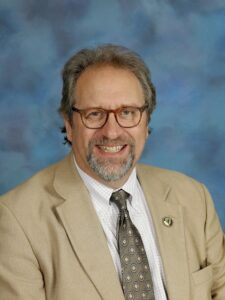Dale Ahlquist Named 2026 Benedict Leadership Institute Honoree
The Benedict Leadership Institute at Belmont Abbey College is honored to announce Dale Ahlquist as the recipient of the 2026 Benedict Leadership Award, to be presented in a public ceremony on March 5th. This award recognizes the extraordinary achievements of men and women whose lives reflect the heroic leadership of St. Benedict and whose work has strengthened culture, faith, and education.

Mr. Ahlquist is widely recognized as one of the world’s leading authorities on the life, writings, and legacy of G.K. Chesterton. As the co-founder and president of the Society of Gilbert Keith Chesterton and the founder of the Chesterton Schools Network, Mr. Ahlquist has played a central role in a national renewal of classical Catholic education. Under his leadership, the Chesterton Schools Network has grown into a flourishing movement of classical high schools across the United States, forming young men and women in faith, reason, virtue, and joy.
On December 8, 2025, the Chesterton Schools Network received national recognition when it was awarded the prestigious $1 million Yass Prize, honoring its outstanding contribution to educational excellence and innovation. This recognition reflects Mr. Ahlquist’s tireless work in building a model of Catholic education rooted in the Great Books, the liberal arts, and the formation of character — an approach inspired by Chesterton’s vision of human dignity, freedom, and truth.
Mr. Ahlquist has helped establish more than 70 Chesterton Academies that serve families seeking an education that is academically rigorous, culturally rich, and spiritually grounded. These schools emphasize the integration of faith and reason, the pursuit of wisdom, and the cultivation of joy — hallmarks of both Chesterton’s philosophy and the Benedictine educational tradition.
In addition to his work in education, Mr. Ahlquist is a bestselling author, broadcaster, and international speaker. He has written and edited numerous books on Chesterton, hosted the long-running EWTN series G.K. Chesterton: The Apostle of Common Sense, and has spoken at universities, seminaries, conferences, and cultural institutions around the world. His work has introduced countless readers and students to the enduring relevance of Chesterton’s thought for modern society.
In 2020, he received a Presidential appointment to serve on the National Board of Education Sciences. Ahlquist received the 2023 Our Lady of Victory Medal and honorary doctorates from the University of Mary and Thomas More College.
Mr. Ahlquist’s leadership reflects a deep commitment to renewing Western culture through faith, literature, and education. His work has helped restore confidence in the Catholic intellectual tradition and has inspired a new generation of educators, parents, and students to pursue truth, beauty, and goodness.
About the Benedict Leadership Institute
The mission of the Benedict Leadership Institute is to develop and inspire Catholic leaders to transform society in light of their faith. The Institute accomplishes this goal through publications, events and through the awarding of The Benedict Leadership Award, presented annually to an outstanding Catholic leader.

